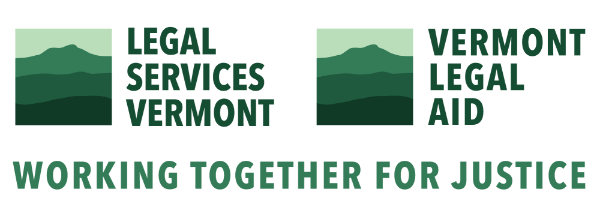A Power of Attorney form is a powerful legal document that allows you to give another person, an “Agent,” the authority to handle your financial and personal decisions. However, an Agent under a Power of Attorney has no authority to make health care decisions for you.
In June 2023, the Vermont legislature adopted the Uniform Power of Attorney Act. The new Uniform Power of Attorney Act has specific requirements for the content of a Power of Attorney. This new law is very different from Vermont’s previous Power of Attorney law.
Power of Attorney form created by VLA
Vermont Legal Aid (VLA) created this form to comply with the requirements under the new law.
A Power of Attorney allows another person (called your “agent”) to make financial decisions for you (the principal). Your agent should follow your wishes. You can still make decisions for yourself as long as you are able. This power of attorney form does not authorize your agent to make health care decisions for you.
This Power of Attorney form is a simplified version based on the Uniform Power of Attorney Act. You have several choices to make as you complete this form. These are your choices. You get to decide:
- who is your Agent
- whether or not you want Co-Agents
- who your replacement agents will be in the future
- when this Power of Attorney starts
- what power and authority your Agent will have
- the option to nominate a Guardian if you ever need one, and
- options to give you accountings from your Agent
You should select someone you trust to be your Agent. You should let them know you have selected them to be your Agent. You should keep several copies of this Power of Attorney after you sign it. Give a copy to your Agent for safekeeping. You should also give a copy to your bank and your other financial institutions. You need to confirm that your bank will accept this Power of Attorney form.
This Power of Attorney is “durable”. That means that it continues after you become incapable of managing your own affairs. You have the right to revoke this Power of Attorney. However, under Vermont law, you will not be able to revoke this Power of Attorney after you have been determined to lack capacity.
You have other options for a Power of Attorney under Vermont law. This includes the option to grant additional powers listed here in an optional addendum. If you have questions about this Power of Attorney or the authority you are granting to your Agent, you should seek legal advice before signing this form.
If you have questions, contact us at Legal Services Vermont and Vermont Legal Aid. Or, contact the Vermont Bar Association Lawyer Referral Service online or call 1-800-639-7036.
VLA Power of Attorney form
Another example of a Power of Attorney form
This form is another example of a Power of Attorney (POA) form that complies with the requirements under the new law. This form was not created by Vermont Legal Aid. It is harder to fill out. Vermont Legal Aid and Legal Services Vermont cannot help you fill out this example Power of Attorney form. If you wish to use this form to appoint an Agent to manage your financial affairs for you, you should ask a qualified estate planning attorney for legal advice. Contact the Vermont Bar Association Lawyer Referral Service online or call 1-800-639-7036.
This PDF document does not meet all requirements of a fully accessible PDF. For a more accessible experience, use the Word document.
Form for revoking Power of Attorney
Vermont Legal Aid created this form so you can end your Agent’s authority to handle your financial business. Canceling a Power of Attorney is called a “revocation.”
Your Power of Attorney has not been revoked until your Agent knows that you have ended their authority to act on your behalf. You can revoke the Power of Attorney by telling your Agent they are no longer allowed to handle your affairs. You should also revoke the Power of Attorney in writing. This revocation form will cancel your Power of Attorney. Vermont Legal Aid created this new form.
You may not revoke a power of attorney if you have been found incapable of handling your own property or business decisions. While a witness signature is optional, you may want someone to confirm that you are capable of making those types of decisions. A witness (such as a medical provider, a lawyer, or a trusted friend) can sign the document to verify that in their opinion, you are fully capable of managing your own affairs.
Places like your bank also need to know that you have revoked your Agent’s authority. You should send everyone a copy of this written revocation who also has a copy of your original Power of Attorney. They will know your former Agent is no longer allowed to access your financial information or conduct business on your behalf.
The signature of a notary public is also optional. This form revokes a Power of Attorney even if it is not witnessed or notarized.
If you have questions about revocation, contact us at Vermont Legal Aid.
VLA Revocation of Power of Attorney form
This PDF document does not meet all requirements of a fully accessible PDF. For a more accessible experience, use the web text version.

